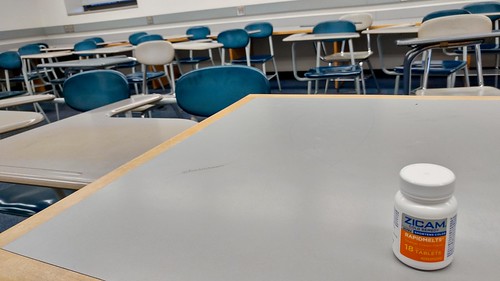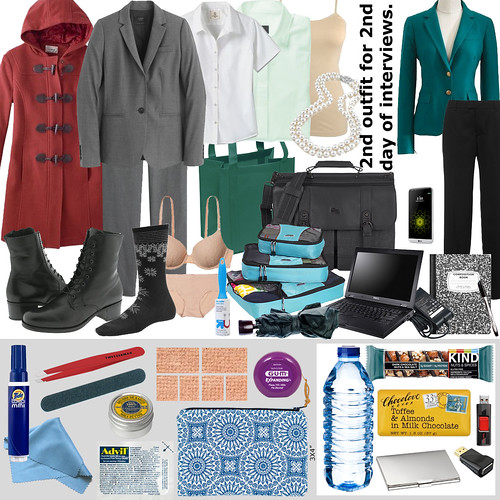Wednesday, January 18, 2017
I'm not an expert on campus visit interviews, but I've been reasonably successful with my on-campus interview-to-offer ratio and learned a few things in the process. This is just a brain dump of things I've learned.
As always, The Professor Is In has some nice resources: (1) Rules of the Campus Visit, (2) Search Committee Interview, (3) Rules of the Job Talk, (4) Stop Acting Like a Grad Student, (5) The Be Yourself Myth, (6) How To Talk To a Dean, No Missed Opportunities on the Campus Visit, and many more. Just scrounge the website for 'campus visit'.
These are all great resources, but as a general guideline I would say the keys are:
- The three most important things you need to find out, for yourself, are Do I like these people?, Does the department want every hire to receive tenure?, and Can I see myself happy here in 7 years?
- The Campus Visit is 50% about your job talk and 50% about personality fit (both you-to-colleagues and colleagues-to-you). Mess up either one, and there's no recovery.
- Make them laugh
- Small talk
- Be the nicest, most optimistic version of yourself
- Don't put down anyone or anything.
- Don't do anything that makes you look like a grad student rather than a colleague.
- Play it cool.
- Have something to ask/say when people always ask you if you have any questions for them.
- Ask for bathroom breaks. Once there, eat a snack, file your nails, take notes on the day's conversations so far, whatever you need to do.
- Take ~10 word notes on conversations you've had with each person throughout the day. Do not wait until the end of the day. Do not wait until you're in the airport. You will not remember anything, and you need these notes for a quick amount of personalization in the thank you notes.
- When scheduling the interview, if there's blank spots in your schedule or they ask you for names of people to meet with, always give them a few names in the department and a couple from across the institution that you'd like to meet. The Professor Is In agrees.

- (optional) Arrival night dinner
- Breakfast with a search committee member at 8am
- A multitude of 30-minute meetings with various faculty in the department
- Lunch or separate meeting with students
- One-hour slot for your job talk later in the day (45 minute talk + 15 minutes of questions)
- One-hour meeting with the Dean
- Very limited breaks, if any at all
- Lots of asking people where the restroom is
- Dinner with the search committee that runs until ~8pm
- (liberal arts colleges, optional) 20-40 minute teaching demo
- (optional) Non-evaluative external faculty meeting
- (optional) Realtor tour of the surrounding area
- (optional) Second day of interviewing, including more meetings
"Interview" Meetings
At the end of a two-day interview I wrote 22 thank you emails, which implies that I spoke with about 22 people. Not all of these were 30 minute one-on-one meetings (some were a group lunch), but most were. For a one-day interview at a liberal arts college, I wrote 12 thank you emails. So. There's a lot of talking to people, and not actually a lot of grilling. A 12-hour interview sounds daunting, but if you think of it as 12-hours of discussing potential collaborations, it's actually pretty fun. Tiring, but fun. Both sides want the other to like them, so this leads to some really great conversations. You talk about your work a lot and their work occasionally, but maybe also side topics like spatial reasoning skills-computer science-gender (one of my favorites), politics (to make sure you fit), the importance of communication in research, etc. etc. So, you don't tend to get asked tricky human-resources-type questions, just more things like:- Summarize your research.
- Give an introduction to your sub-domain.
- How would being at ____ Institution impact your research? Would you keep external collaborations? (the answer at liberal arts colleges is yes)
- Would you have enough resources here to do your work? (Be able to list the resources you need)
- Do you have any grant-writing experience?
- Where do you plan to get funding?
- Here's a list of questions from someone in a similar field, full of questions he asked and got asked.
- The Professor Is In details approaches to some of these.
- You're trying to convince them you're a peer, not a PhD student.
- Don't be too enthusiastic about inquiring about sabbaticals/maternity leave/pay.
- These meetings are where your sense of humor and personality are allowed to come through. If hired, these people have to work with you for decades.
- Where opportunities for [tenure-related] feedback occur is a safe/intelligent question.
- When my brain blanks on creating a question, I tend to fall back on "I find that people give great insights when allowed to just talk, so maybe you can tell me a bit more about ___?" Alternatively, ask what campus is like during the summer - who's around, can you leave for a bit to meet with external collaborators, etc.
- For research institutions it's good to have one or two questions about your interviewer's research. It's not absolutely necessary, but lends you an air of thoroughness.
- Be careful asking about the biggest negatives/obstacles to being at ___ Institution. This question is best saved for external faculty meetings. Alternatively, pair it with a "best/worst aspects of living/working here?" question.
The Job Talk
I generally agree with the wisdom of The Professor Is In: Rules of the Job Talk, but would add the following tips:- For liberal arts colleges, start with a 10 minute overview of your sub-domain. Motivate why it's important, maybe go a bit in-depth into a method and a student project from a class you taught. Be sure this ties in with your research somehow.
- Have a big finish.
- The question-session at the end is way less stressful than anything I endured at my PhD granting institution. It's actually fun/productive/interesting. Minimal terror.
- I always feel like I could've done better in my job talk. There is always room for improvement, but I'm apparently a bit hard on myself.
- 'Pretty sure everyone always looks bored to tears during job talks. Don't sweat it too much.
- You can reuse some of your dissertation defense content, but really only about a third of it is particularly useful. My talk includes:
- an introduction to human-centered design/HCI
- one of the three experiments from my dissertation defense
- in-depth explanation of some current/future work
- a list of future research questions
- a grande finale that unites all this under an umbrella big-research-goal

Scheduling the Interviews
I dislike flying across the country, and have found that combining interview trips on the east coast helps reduce this. I have saved myself days of being suspended in air and boredom this way. But in the month of December this also meant that I had 4 full days of interviewing (12 hours each), in a 7 day period. It is very tiring to do this. Despite my exhaustion, I was pretty successful. So, tiring, but certainly possible. I think it's fairly more common to have one interview per week, as I did in January. Still exhausting, but at least there's a half week break in-between each. I also combined the blue and magenta trips in January, with a stopover at my parents' house for the half week. It really does help to have an East Coast base of operations for such coordination tasks. If you're interviewing in the same general locale as where you live, then you probably don't need to combine interviews as much. HOWEVER, do not schedule yourself on the last flight of the day, or airplane issues may cause you to miss your interview! Earlier is better, trust me!!!Timezone Adjustments
If you are on the west coast and doing interviews on the east coast, it is absolutely necessary that you adjust your sleep/food schedule to the East Coast time prior to your (undoubtedly, early) flight out there. I start the process about a week prior where I wake up 30-60 minutes earlier each day until I'm waking up at 4am and going to bed around 8pm. The early wake up is necessary so that you'll be tired enough to sleep at 8pm. This is a self-induced one week of jet lag and it makes me completely exhausted and useless for the entire week. However, it also makes me fully functioning during my interviews, for which I usually wake up at 6am to get a bit of a job talk practice in prior to 8am breakfast. I have now been on east coast time for about 2 months, despite a couple stop overs in the California apartment. With an 8pm bedtime, I haven't seen much of J considering he gets home from work 30 minutes prior, lol. Also, book the 7am cross-country flight so you arrive at your destination before 6pm (helps reduce the devastation of delayed flights). You're already waking up at 4am, what effect will a 7am flight have on that?!
Stuff to Keep in your Briefcase
My post on packing for the campus visit covers this, but here it goes again:- A good quality, professional briefcase (leather)
- Laptop + Charger
- Cell phone + Charger
- Notebook/Print-outs with names of everyone you're meeting with and one line about their research (this is not critical at liberal arts colleges). Something you can memorize, or at the very least, read during a bathroom break.
- Projector dongle that converts whatever you have to VGA (you will need it)
- USB Drive with a copy of your talk (and teaching demo, if needed)
- Physiological sustenance: Water bottle, Granola bar, Chocolate bar
- Business cards (although I've never used them)
- "Emergency" 3"X4" Zipper Pouch with things you might need in the middle of the day:
- Tide stain stick mini
- Eye glass cleaner
- Tweezers
- Mini Emery Board
- Chapstick (or Shea Butter for lips + cuticles)
- Advil/Tylenol
- Blister moleskins
- Floss

BYOV Posts on the Faculty Job Search
- Overview of the Assistant Professor Job Search
- Applying for Academic Positions
- Remote Interviews
- Packing for On-Campus Interviews
- On-Campus Interview Lessons Learned
- Sample Assistant Professor Job Hunt Timeline
- Reflections on Negotiation
- Descriptive Statistics of my Job Search
- Deciding Research or Liberal Arts






1 comments:
You. Are. SUCH. A. Baller.
Post a Comment